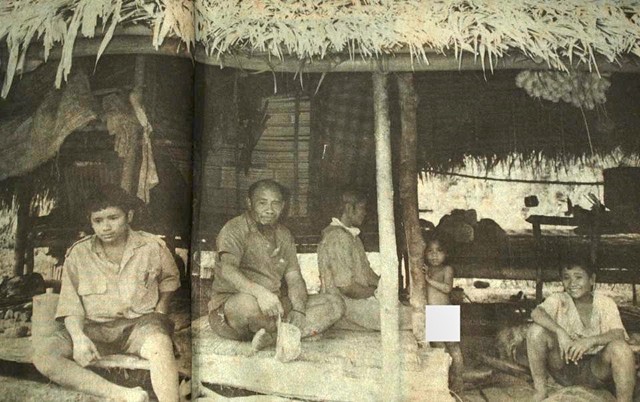Popular Reads
Top Results
Can't find what you're looking for?
View all search resultsPopular Reads
Top Results
Can't find what you're looking for?
View all search resultsPolahi community, guardian of Gorontalo forests
One of the remaining groups of the Polahi community is the Tahilu family, which comprises 10 members and lives on the Hatibi River, Paguyaman, Gorontalo regency. The family made headlines recently for its marriage system that allows males to marry their own mothers.
Change text size
Gift Premium Articles
to Anyone
G
orontalo, Sulawesi Island bears, witness to the existence of the Polahi, a group of residents that abandoned their homes for the woods in the 17th century to avoid taxes imposed by the Dutch colonial administration.
The community has been living in nature for generations in the forests of the Boliyohuto mountain range located 2,065 meters above sea level, which spans from Gorontalo to Boalemo regencies.
Some also live in the mountain ranges of Bogani Nani Wartabone National Park in Bone Bolango and Bolaang Mongondow regencies in North Sulawesi.
Yet, until now, the lifestyle of those living in this community — Polahi — literally meaning “fugitives”, remains a mystery for many. There is no exact data on the community’s population, but it is predicted to continue decreasing, as some members of the community have opted to mingle with or marry local villagers.
One of the remaining groups of the Polahi community is the Tahilu family, which comprises 10 members and lives on the Hatibi River, Paguyaman, Gorontalo regency. The family made headlines recently for its marriage system that allows males to marry their own mothers.
Tahilu, for instance, has two wives, who are sisters, namely Ipa and Lumeya. Ipa was later released and married her son Maulya.
An online media outlet in Jakarta once wrote a story bearing a bombastic headline mocking their way of life. A television program also presented the Polahi as people who walked around half naked, while in fact they dress like those in any ordinary community.
(Read also: Local culture should be taught in schools, activist says)
“Polahi people continue to be exploited, including by the mass media,” Polahi researcher and professor of sociology Rauf Hatu of Gorontalo State University, said.
He said the Polahi were often misunderstood and depicted as living with no rules, wild, impolite and knowing no religion.
The latest research on the Polahi was conducted by NGO Burung Indonesia and Gorontalo State University at the end of 2016.
Burung Indonesia archeologist Marahalim Siagian, who led the research team, said the Polahi’s marriage system should be seen from a scientific angle, such as from the medical aspect. He said no child had been born out of the incestuous marriages.
“The incestuous marriage can be seen as a survival measure considering that the Tahilu family has more male than female members,” Marahalim told The Jakarta Post recently.
(Read also: Legal uncertainty 'at root cause' of mistreatment of indigenous people)
The research, he added, also confirmed that not all things regarding the Polahi had negative connotations. The Polahi people survived through hunting and cultivating. They also have wisdom that is in accordance with conservation.
The Polahi, for example, do not eat the meat of particular animals, such as the endemic and protected rangkong and maleo birds. They do not eat Celebes monkeys either, as they believe that the animals are human incarnations. They also believe eating pork causes skin irritation. According to Polahi cosmology, Marahalim added, there were three balancing powers: Pulohuta, Lati and Lausala. As such, when they cut down a tree, for example, they must ask for permission from one of these three powers.
Marahalim said there were many other Polahi wisdoms that were in line with conservation efforts and that the Polahi people could be considered guardians of Gorontalo forests.
“Many want to change their lifestyles, modernize them, take them out of the woods. But, for what?” he said.











